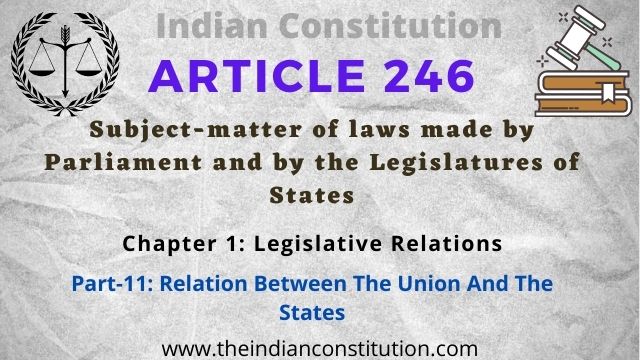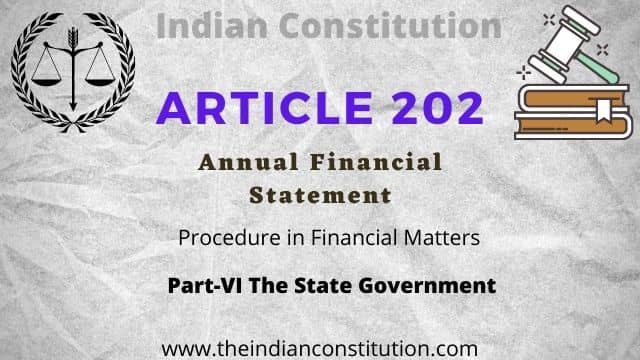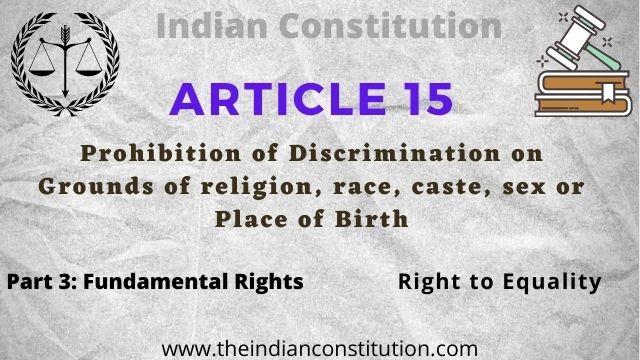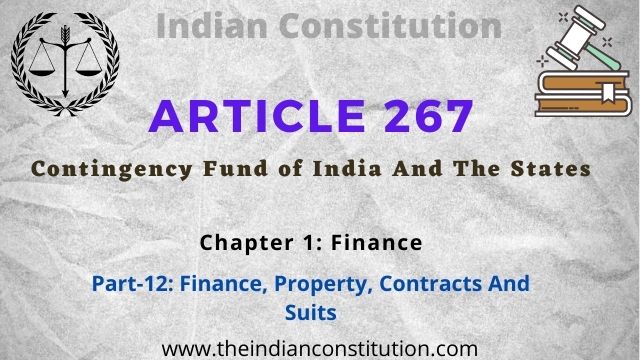Article 246 Subject Matter of laws
Navigation: Constitution Of India > Part-11: Relation Between The Union And The States > Chapter 1: Legislative Relations > Distribution of Legislative Powers > Article 246
Article 246: Subject-matter of laws made by Parliament and by the Legislatures of States
246(1): Notwithstanding anything in clauses (2) and (3), Parliament has exclusive power to make laws with respect to any of the matters enumerated in List I in the Seventh Schedule (in this Constitution referred to as the “Union List”).
246(2): Notwithstanding anything in clause (3), Parliament, and, subject to clause (1), the Legislature of any State 1*** also, have power to make laws with respect to any of the matters enumerated in List III in the Seventh Schedule (in this Constitution referred to as the “Concurrent List”).
246(3): Subject to clauses (1) and (2), the Legislature of any State has exclusive power to make laws for such State or any part thereof with respect to any of the matters enumerated in List II in the Seventh Schedule (in this Constitution referred to as the “State List”).
246(4): Parliament has power to make laws with respect to any matter for any part of the territory of India not included 2in a State notwithstanding that such matter is a matter enumerated in the State List.
- The words and letters “specified in Part A and Part B of the First Schedule” omitted by the Constitution (7th Amendment) Act, 1956, s. 29 and Sch. (w.e.f. 1-11-1956).
- Substituted by ibid., for “in Part A or Part B of the First Schedule”.
-Text in Constitution




